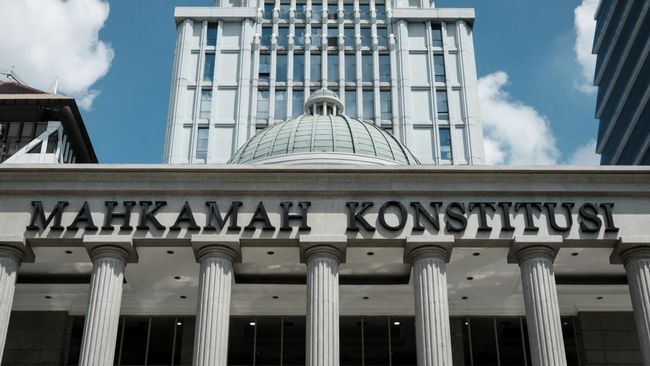Jakarta, Hilton News –
The Association of Customary Law Teachers (APHA) represented by Chairman Laksanto Utomo and Secretary General Rina Yulianti submitted a request for judicial review to the Constitutional Court (MK) related to Law Number 39 of 2008 concerning State Ministries, Monday (20/5).
They took Viktor Santosa Tandiasa and the VST and Partners Team consisting of Fitri Utami, Fauzi Muhammad Azhar, and Aditya Ramadhan Harahap as legal representatives.
In their petition, they examined Article 5 paragraph (2) of the Law on State Ministries which was considered contrary to Article 1 paragraph (2), Article 1 paragraph (3), Article 18B paragraph (2), and Article 28D paragraph 1 of the 1945 Constitution.
They basically asked the Constitutional Court to add the phrase ‘Customary Law Peoples’ in Article 5 paragraph (2) of the Law on State Ministries so that the article reads:
“Government affairs as referred to in Article 4 paragraph (2) point b include religious, legal, financial, security, human rights, customary law communities, education, culture, health, social, labor, industry, trade, mining, energy, public works, transmigration, transportation, information, communication, agriculture, plantations, forestry, animal husbandry, marine, and fisheries.”
“I have registered with the Constitutional Court,” said Viktor by showing proof of the application registration file, Monday (20/5).
Viktor explained that the reason in the application for examination of Article 5 paragraph (2) of the Law on State Ministries was to strengthen the position of customary law communities who are part of the Indonesian nation as the highest holders of sovereignty in order to channel their will and aspirations in the administration of government affairs as stipulated in Article 1 paragraph (2) of the 1945 Constitution.
“Strengthening indigenous peoples needs to be pursued considering the existence of indigenous peoples until now even more marginalized, not seriously managed, and even often victims of state violence that massively take lands that were originally controlled and inhabited by indigenous groups,” said Viktor.
Viktor added, when looking at the institutional aspect, government affairs that intersect with the rights of indigenous peoples still involve various cross-sectors including the Ministry of Environment and Forestry (KLHK), the Ministry of Agrarian and Spatial Planning, the Ministry of Villages, Development of Disadvantaged Regions, and Transmigration, the Ministry of Agriculture, and the Ministry of Home Affairs.
According to him, the implementation of the current multi-door system that regulates the affairs of indigenous peoples has an impact on overlapping policies issued by each ministry.
For example, between the Ministry of Agrarian Affairs and Spatial Planning and the Ministry of Environment and Forestry regarding the status of customary forest land. In fact, Article 18B paragraph (2) of the 1945 Constitution has mandated the state to recognize and respect the unity of indigenous peoples and their traditional rights as long as they are alive and in accordance with the development of society and the principles of the Republic of Indonesia as stipulated in the Law.
In the article, explained Viktor, the state is obliged to provide recognition and respect and ensure that the rights of indigenous peoples can be protected and fulfilled by law.
Thus, Viktor concluded, the establishment of a ministry of indigenous peoples is one of the progressive steps in providing recognition and protection to indigenous peoples.
He considered that the absence of the phrase ‘customary law communities’ as one of the government affairs in Article 5 paragraph (2) of the Law on State Ministries caused the establishment of a special ministry that deals with the government affairs of indigenous peoples.
“This then causes problems and discriminatory treatment and clearly violates morality, rationality, and causes intolerable injustice,” said Viktor.
“In addition, it is also contrary to the sovereignty of the people in casu the sovereignty of indigenous peoples and contrary to the 1945 Constitution in casu Article 1 paragraph (2), Article 1 paragraph (3), Article 18B paragraph (2) and Article 28D paragraph (1),” he said.
Indigenous peoples in Indonesia are still fighting for state recognition and protection. They continue to push for the Indigenous Peoples Bill that has been carried out since 2003 to be passed. Finally, through the Jakarta State Administrative Court (PTUN), the Alliance of Indigenous Peoples of the Archipelago (AMAN) fought. However, the Jakarta PTUN said it did not accept their application.
(ryn/fra)
[Image:HN Video]
